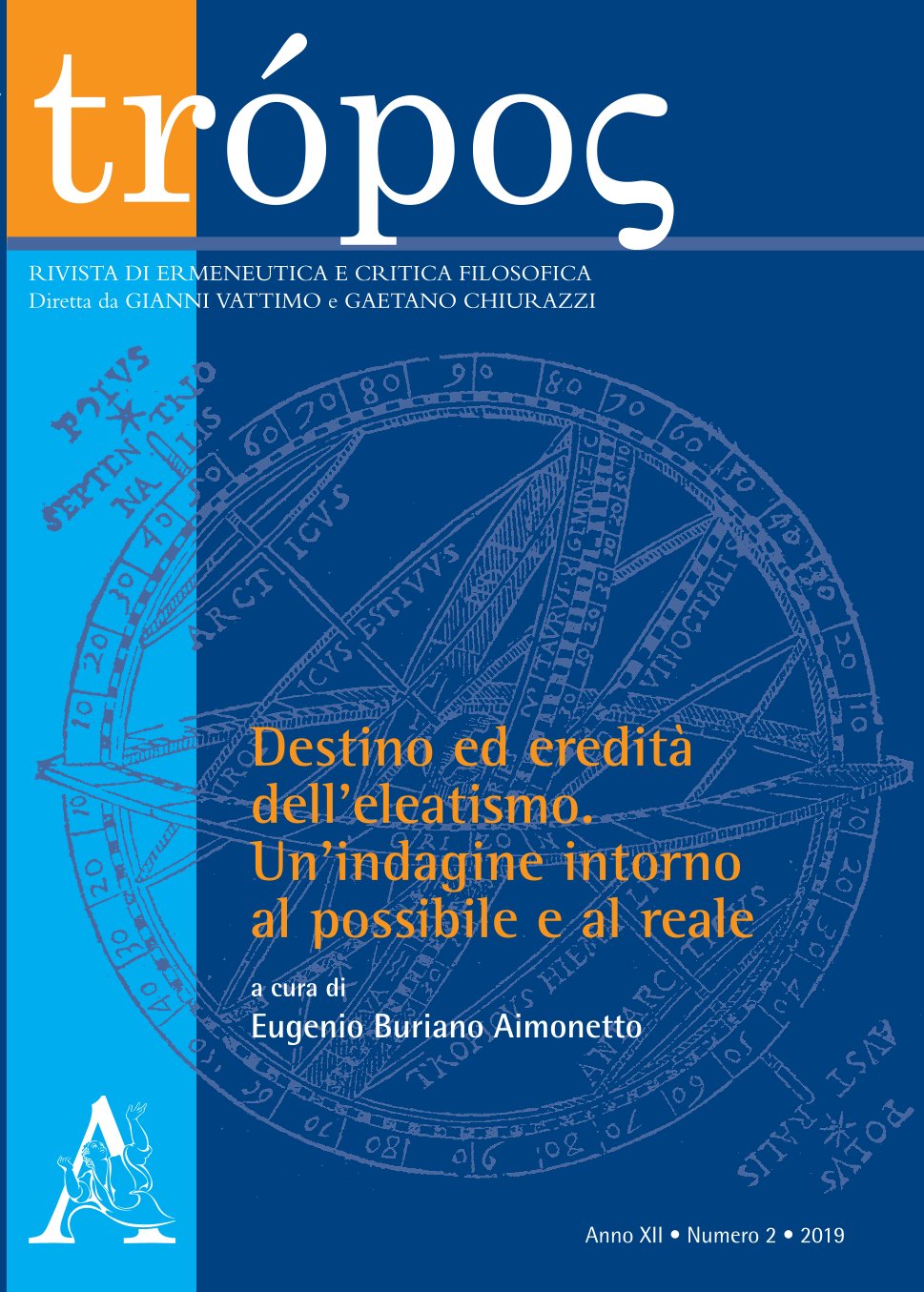Assenza e morte dell'arte
Hegel e Heidegger tra inizio e fine dell’estetica
DOI:
https://doi.org/10.13135/2036-542X/8081Keywords:
Kunstlosigkeit, End of Art, Aestehtics, Hegel, Heidegger, HölderlinAbstract
This contribution aims to investigate the relationship between the Hegelian thesis of the end of art and the Heideggerian concept of Kunstlosigkeit: This comparison helps to understand why Heidegger considers Hegel the fulfillment of Western aesthetics: the knowledge of the lack of art, which Hegel has reached, is in fact only possible, according to Heidegger, when metaphysics, having reached its fulfillment, turns back and retraces its steps, as the Hegelian system does. Hegel’s thesis, as the definitive metaphysical thesis on art, remains in force as long as the domination of metaphysics endures. In contrast to that thesis, however, according to Heidegger, Hölderlin’s poetic word stands out, as the only testimony to the possibility of overcoming metaphysics and aesthetics. The closeness between Hegel and Hölderlin, between the end of metaphysics and the beginning of a new thought, thus hides an ambiguity that even Heidegger did not fully investigate.


